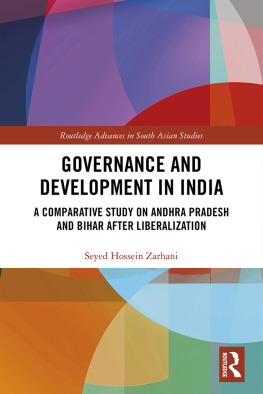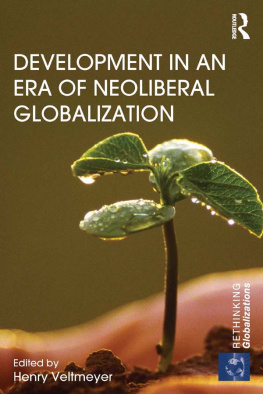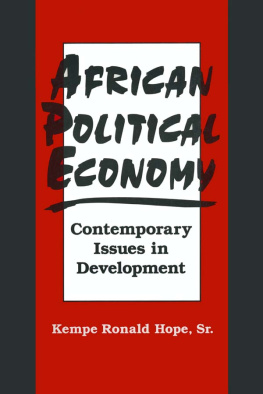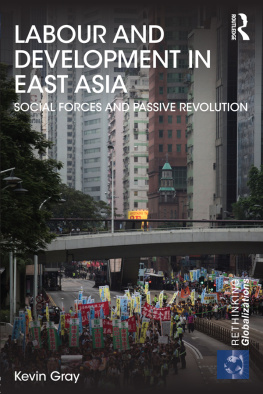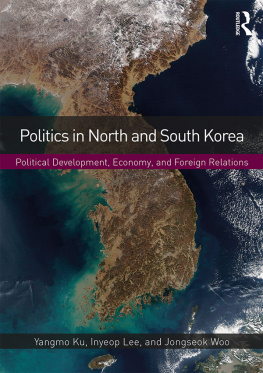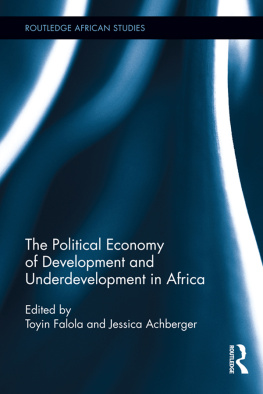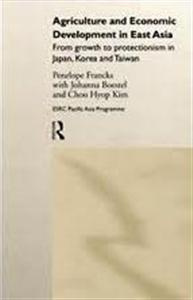
The Politics of Economic Reform in South Korea
Since the 1980s, the economic performance of the East Asian region has opened up an agenda of social science research into the directive capacity of the state. 'Institutionalise analysis in political; science has emphasised the role of power relationships in underpinning the superior directive capacities of the East Asian state. Based on the case of South Korea (hereinafter Korea), this study will extend the political institutionalist analysis in the light of the last decade of global transition towards economic liberalisation and democratisation ('dual transition'). Set in the context of parallel changes in other former developmental states (notably those of Latin America), this volume will investigate key issues of Korea's recent experience of transition including:
- Korea's 'gradualist' or 'continuous' pattern of economic and political reform
- the variations in the rhythm and priorities of reform within the gradualist pattern of transition
- the developmental alliance of state and business as a source of both economic dynamism and vulnerability, and the endurance of that alliance despite persistent reform efforts
- the external shock and regime change of 1997 as the catalyst for decisively transforming the institutional foundations of Korean development.
This comprehensive and authoritative account of the development of the Korean economy combines an historical approach with a substantial treatment of the new economy. Its fresh analysis of the recent transition and systematic treatment of labour issues represent a significant contribution to the scholarship on the politics of development. It is an essential resource for students of comparative political economy and East Asian development.
Tat Yam Kong is Lecturer in Politics at the School of Oriental and African Studies, University of London. Educated at Newcastle and Oxford Universities, his previous publications include The Korean Peninsula in Transition (co-edited with D.H. Kim).
Routledge Advances in Korean Studies
1 The Politics of Economic Reform in South Korea
A fragile miracle
Tat Tan Kong
The Politics of Economic Reform in South Korea
A fragile miracle
Tat Yan Kong
First published 2000
by Routledge
2 Park Square, Milton Park, Abingdon, Oxon, OX14 4RN
Simultaneously published in the USA and Canada
by Routledge
270 Madison Ave, New York NY 10016
Routledge is an imprint of the Taylor & Francis Group
Transferred to Digital Printing 2008
2000 Tat Yan Kong
Typeset in Baskerville by Florence Production Ltd, Stoodleigh, Devon
All rights reserved. No part of this book may be reprinted or reproduced or utilised in any form or by any electronic, mechanical, or other means, now known or hereafter invented, including photocopying and recording, or in any information storage or retrieval system, without permission in writing from the publishers.
British Library Cataloguing in Publication Data
A catalogue record for this book is available from the British Library
Library of Congress Cataloging in Publication Data
Kong, Tat Yan, 1961-
The state and development in South Korea: a fragile miracle/Tat Yan Kong.
p. cm.
Includes bibliographical references and index.
1. Korea (South)Economic conditions1960- 2. Korea (South)Economic policy1960- 3. Korea (South)Politics and government. I. Title.
HC467.K5885 2000
338.95195dc21
00-036599
ISBN 0415145031
Publisher's Note
The publisher has gone to great lengths to ensure the quality of this reprint but points out that some imperfections in the original may be apparent
Contents
The main features of the South Korean economic 'miracle' are well known, and rightly celebrated. An outstanding record of sustained long-term growth converted a low income war-torn resource-poor economy into a major industrial and trading power within the space of a few decades. By the early-1990s, South Korea had become the world's largest shipbuilder, the third biggest manufacturer of large capacity memory chips, and a substantial player in the global automobile industry. Half a century after the Korean peninsula was divided at the 38th parallel, the southern state had demonstrated that an initially backward economy can leapfrog the international hierarchy of development and virtually eliminate absolute poverty. Moreover, according to the standard comparative indicators of income inequality, the Korea of the 1990s was relatively egalitarian, certainly not disfigured by the extremes of inequity to be found in most other newly industrialising countries, whether in Asia or still more in Latin America. In addition, from 1987 onwards this economic success has given rise to extensive political democratisation. Indeed, in 1997, the longstanding opposition politician, Kim Dae-Jung, was finally elected to the presidency at his fourth attempt.
But, as is now equally well known, the 'miracle' was also fragile. Even before Kim Dae-Jung was inaugurated, a massive financial crisis engulfed the entire banking system, the foreign exchange reserves evaporated, and the currency plummeted. The outgoing administration was forced to seek a $67 billion rescue package from the IMF, on terms that were received in a mood of national humiliation.
This volume sets out to explain both the distinctive dynamics of the miracle, and the associated sources of its fragility. It views the two as interdependent, and long term. The central focus is the shifting balance of power in the state-business-labour relationship, and in particular the enduring power accumulated by the chaebol (industrial conglomerates sponsored by the state, counterparts to Japan's pre-war zaibatsu ). Built up under authoritarian rule they proved capable of adapting to benefit from subsequent democratisation as well, and even after the 1997 crisis their capacity for renewal commands attention.
In the course of providing his explanation, the author has also made an important contribution to the comparative and theoretical debates concerning the nature of the developmental state in East Asia, on the causes and consequences of liberalisation strategies in such contexts, and on the multiple repercussions of democratisation. The analysis is interspersed with well-chosen and often highly illuminating comparisons and contrasts between South Korean experience and parallel processes in other newly industrialising countries, both East Asian and Latin American.
A central claim about Korean development is that both economic liberalisation and political democratisation proceeded in a gradual and controlled manner, up to the 1997 crisis, thereby allowing dominant business interests to shore up their positions, even at the cost of frustrating some of the main purposes of liberalisation. Since then IMF supervision has inspired a more root and branch approach to liberalisation, but even so the author presents some compelling grounds for doubting the extent to which the Korean state can now discipline the chaebol , particularly the top five.
This volume provides a fresh benchmark for assessing the state of Korea s development alliance, and the country's future potential in an increasingly 'global' system, where the methods of a 'forced march' are unlikely to be sheltered, and where flexible horizontal networks are gaining competitive advantage over hierarchically organised national champions. But even though some change may be inevitable, restructuring and democratising an economic model that achieved so much success under conditions of state direction and authoritarian control is bound to be a protracted process, and may not follow standard international patterns. For example, the author suggests that the Korean state may have more of a need, and more of a capacity, to develop a social role than is acknowledged in neo-liberal orthodoxy.


